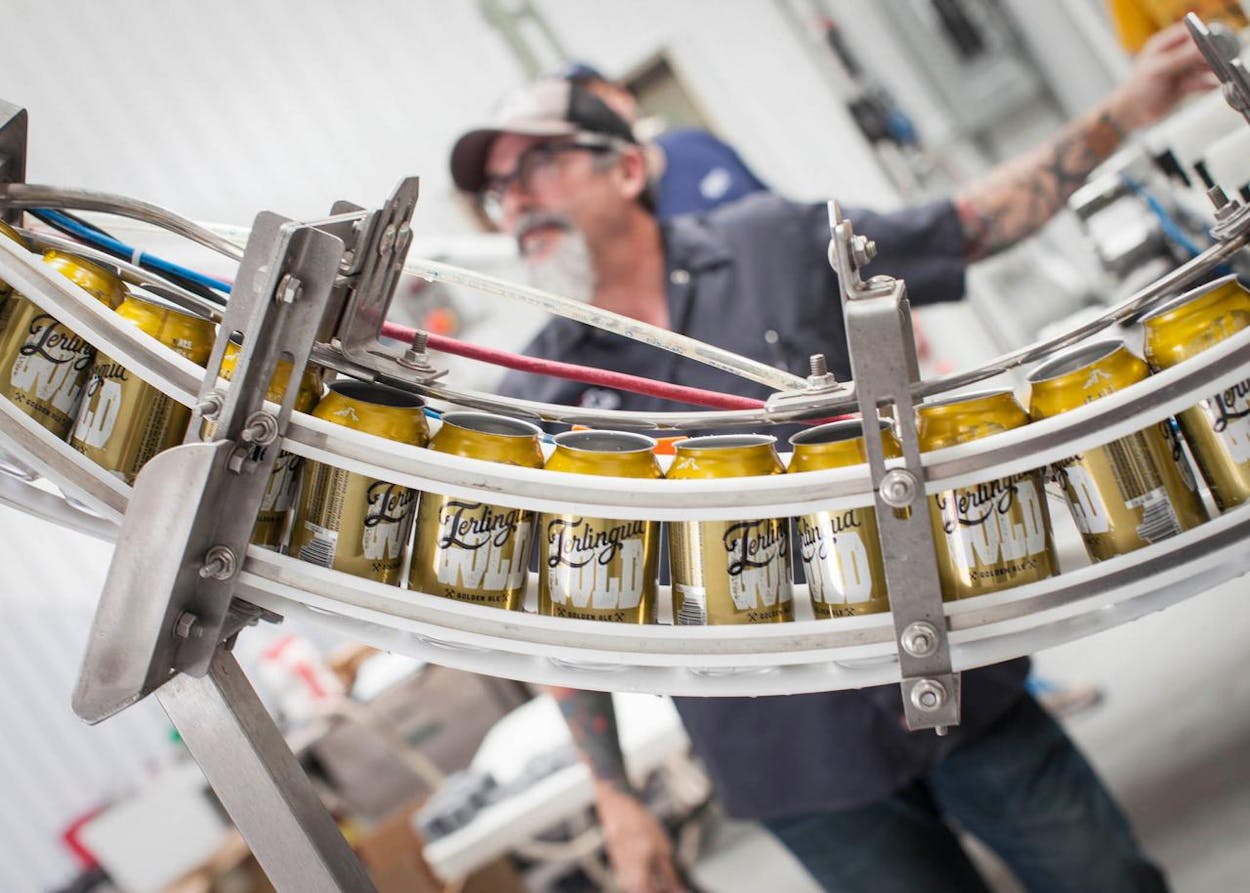ALPINE — More than 400 people gathered this month just outside Alpine in a windswept part of Far West Texas to sample craft beer and celebrate the expansion of the Big Bend Brewing Company.
It was a scene that would not have been out of place in Austin, a city with dozens of large and small-scale beer-brewing operations. But Big Bend Brewing Company is based in remote Brewster County, an area larger than the state of Connecticut but with a population of just 9,286. The closest cities are Midland and Odessa (150 miles away) and El Paso (220 miles).
While there are plenty of rural craft breweries, the company’s brewmaster Steve Anderson was hard pressed to think of another one that was so far from a major city. “Maybe some of the breweries in Alaska,” he said.
When Big Bend Brewing Company started in November 2012, that lack of competition seemed like both a blessing and a curse. “I knew craft beer was exploding, and that Texas and the South were a little bit behind,” Matt Kruger, the managing partner, said. “I could feel that wave coming.”
The Big Bend region was also undergoing a tourism boom; rural Brewster County saw a 57 percent increase in hotel tax revenue in the first quarter of 2014. Kruger and Anderson, who both have homes in the Big Bend region, had a hunch that a beer brand that tapped into the area’s growing popularity might find a foothold both locally and farther afield.
“We could’ve been another one of the 20-something breweries in Austin,” Anderson says. “But we wanted to do something different.”
In December 2012, Big Bend Brewing Company put its first five beers on the market. With West Texas in mind, Anderson focused on beers that would taste refreshing on a hot desert afternoon, including a light-bodied golden ale and a fruity, spritzy Hefeweizen. The response overwhelmed the company. “We’ve pretty much been in a constant sold-out situation as soon as we started canning,” Kruger said. He gestured out to the canning line, where a tidy stream of brightly-colored cans stood waiting to be filled: “All that beer is already spoken for.”
Texas is home to 96 craft breweries, as of 2013, up from 59 in 2011. But only a handful of those are west of the Hill Country in Central Texas. When Big Bend Brewing Company started, there was only one other production brewery in West Texas.
“There’s a brewery and a half opening per day somewhere in the United States, and they’re opening everywhere — urban, suburban and rural,” says Paul Gatza, the director of the Brewers Association, an advocacy organization for craft brewers. “People really take their beer personally. If something opens up locally, people want to support that business.”
For Big Bend Brewing Company, support has come from areas that are surprising even its management team. Take El Paso. “It’s not necessarily thought of as a beer town, but the demand we’re seeing there says otherwise,” Anderson said.
Being rural based has caused its share of headaches. “In Austin, when I needed a part I could just run down to the brewery supply store,” said nderson, who spent a decade as brewmaster of Austin’s Live Oak Brewing Company. “Out here, you’ve got to special order anything stainless steel, and it takes a week to show up. Sometimes that means we’re not producing for a week.”
Supply interruptions notwithstanding, the brewery has built a loyal customer base in West Texas, where the beer is on tap in bars as far south as the Mexican border. Big Bend National Park stocks six-packs in its park convenience stores, and more than a hundred bars, restaurants and stores are on the brewery’s waiting list.
Nearly two years after producing its first kegs, Big Bend Brewing Company has quadrupled production. The July event, billed as the Bigger Better Brewery Bash, celebrated the unveiling of the expansion. Local residents and tourists wandered through the brewing space, examining the giant stainless steel fermentation tanks. Outside, a dust devil whipped through the seating area, sending a visitor’s cowboy hat skyrocketing into the air and reminding attendees that they were still in West Texas.
Abby Simpson and Kerri Battles, self-described beer connoisseurs from Austin, approved as they sampled the brewery’s Tejas Lager and Big Bend Hefeweizen. “We already loved coming out here for the nature, but knowing there’s something like this makes it even more attractive to vacation here,” Battles said. Simpson asked Mahala Guevara, the company’s controller, if the brewery had plans to distribute in Austin. “We’re thinking San Angelo and Lubbock first,” Guevara said. “Then Austin.”
A few days after the celebration, the company’s general manager, Richard Fallon, had already received several phone calls from Austin establishments asking if they could stock the beer. But the brewery’s management has decided to avoid the already crowded Austin, Dallas and Houston markets for now.
While Kruger dreams of distributing nationally within a decade, for the time being, the brewery’s focus is on satisfying the customers in its own backyard. “People are clearly thirsty for it,” he said. “We haven’t hit our ceiling out here yet.”






